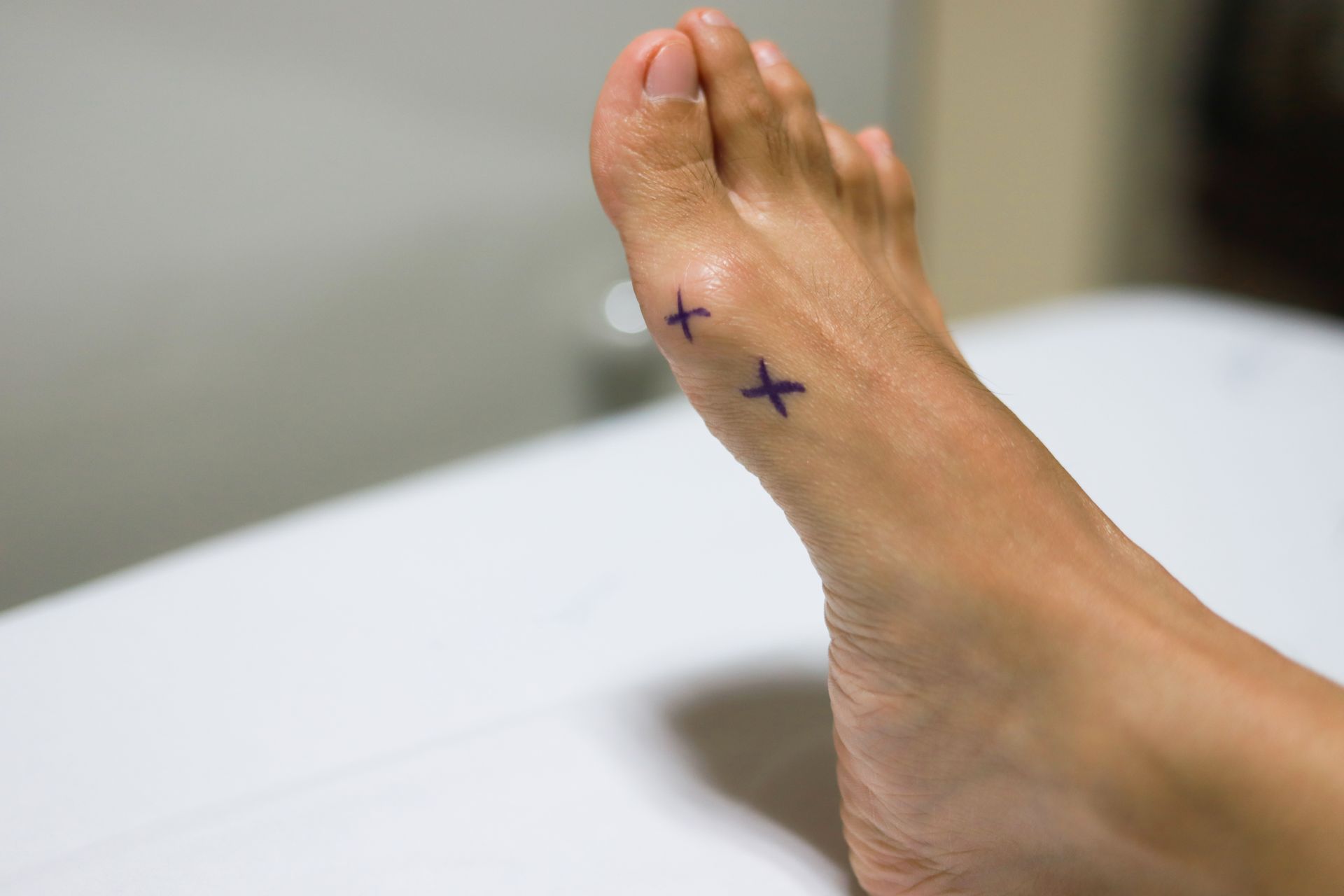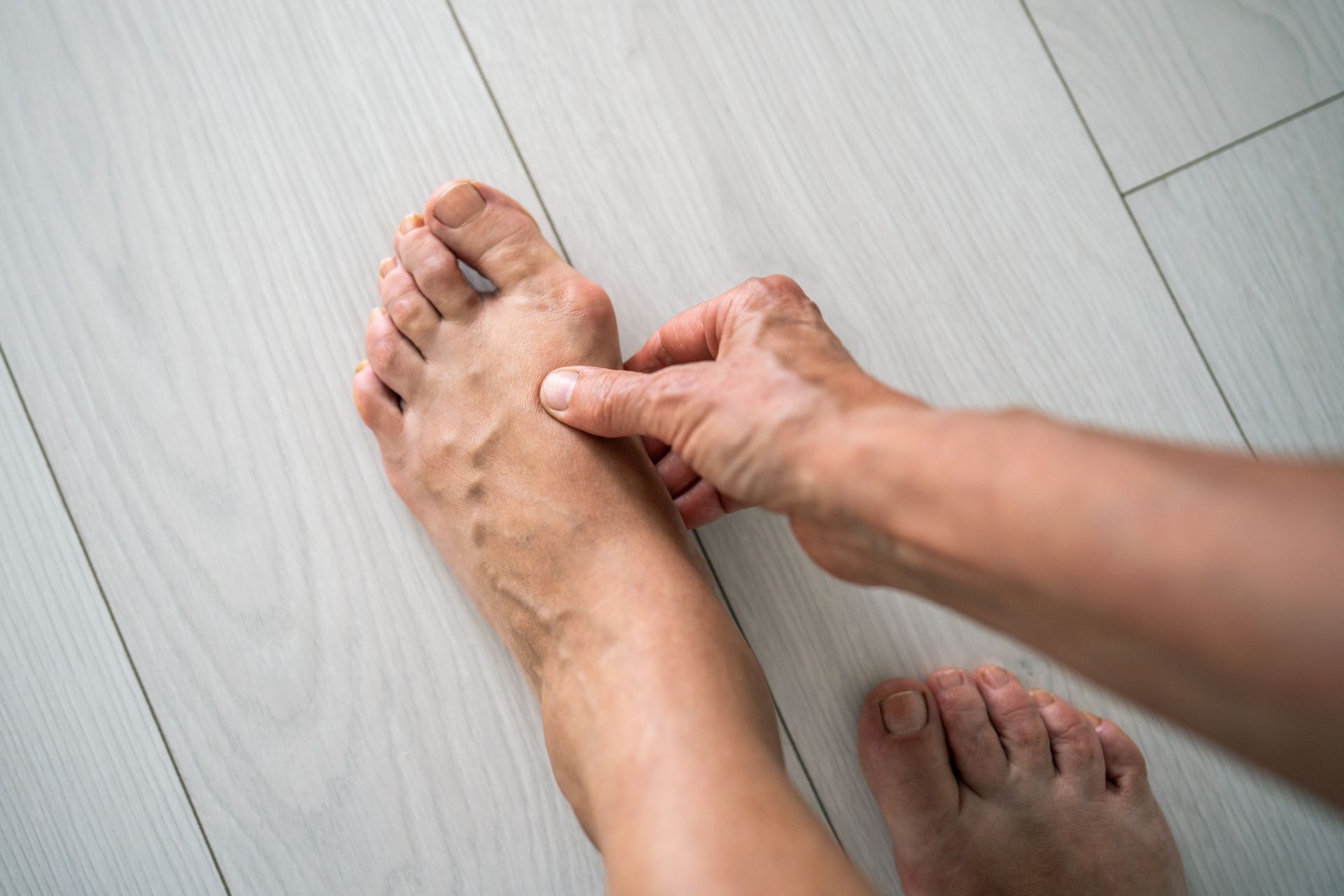6 Causes of Pediatric Foot Pain
Children frequently complain of aches and pains that resolve quickly with rest and ice. However, sometimes these conditions linger and require an examination. I see several common causes of foot pain in young people that benefit from treatment.
Flatfeet in Children
Flatfeet (pes planus) are present in many children. It is estimated that 50% of 3-year-olds have flatfeet, and that number decreases to 25% by age six. Many of these feet will never be painful or cause any problems. Flexible flatfeet tend to be less symptomatic than rigid or stiff flatfeet and are more common in males than females. Heel cord stretches, supportive shoes and inserts are good initial treatments for children with flatfeet.
Juvenile Bunions
Although bunions (hallux valgus) are more common in adults, children can develop bunions also. This presents as a bump near the big toe joint. The big toe may lean on and even underlap the 2nd toe. Juvenile bunions are more common in females than males. A podiatrist can help determine what treatment options may be helpful in bringing relief for bunions causing discomfort.
Sever's Disease & Growth Plate Inflammation
Growth plate inflammation (apophysitis) is most common in the heel bone, where it is called Sever’s disease. It is not really a disease, but an activity and age-related irritation of the growth plate along the back of the heel. This is the most common cause of foot pain in patients aged 10 to 12. Children who experience rapid growth or begin a new activity like soccer or running are at risk for this condition. Apophysitis is often self-limiting, meaning it can resolve on its own. Rest, ice, arch supports and heel chord stretches are good initial treatments for apophysitis. In severe cases, immobilization in a cast or boot, physical therapy and custom orthotics are necessary.
Accessory Bone of the Arch
An accessory bone (os tibiale externum) is an extra bony prominence seen along the arch of the feet. It is estimated to be present in 10% of people and is present in both feet roughly 70% of the time. These are not usually visible until 9 years old. Many of these will not become symptomatic and are discovered later in life as an “incidental” finding on an x-ray. Only painful accessory bones require treatment.
Ingrown Toenails in Children
Ingrown toenails are the most frequent nail disorders in children. The cause of ingrown toenails is not clear, but shoe irritation is a common complaint. Ingrown toenails are more likely on the big toenail, than on any other toenail. Home remedies like Epsom salt soaks, topical antibiotics and clipping the incurvated nail can help. A procedure where the toe is numbed locally in the office and the incurvated toenail is removed followed by the application of a chemical called phenol is the safest, most reliable way to fix ingrown toenails with the lowest recurrence rate.
Plantar Warts in Children
A plantar wart (verruca plantaris) is a viral skin lesion on the bottom of the foot. This is more frequently seen in children than adults, although they can appear at any age. Plantar warts can be painful. Topical medications, chemical freezing and excision of the wart are successful treatments for plantar warts.
If your child is experiencing foot pain related to any of the above conditions, contact a Baton Rouge podiatrist , and request a consultation to learn more about the available treatment options.


